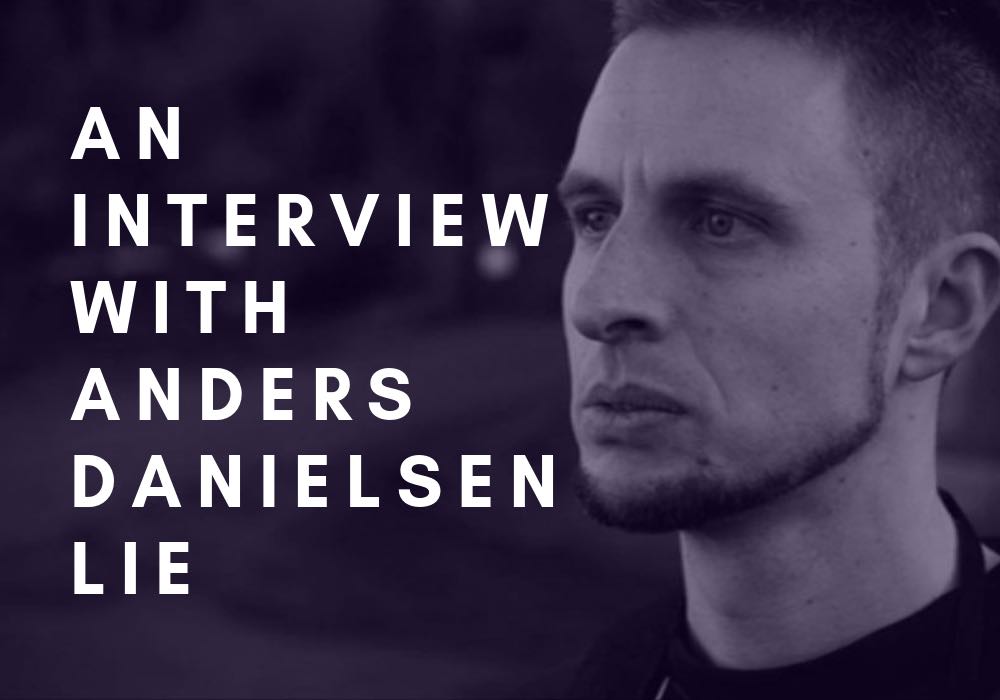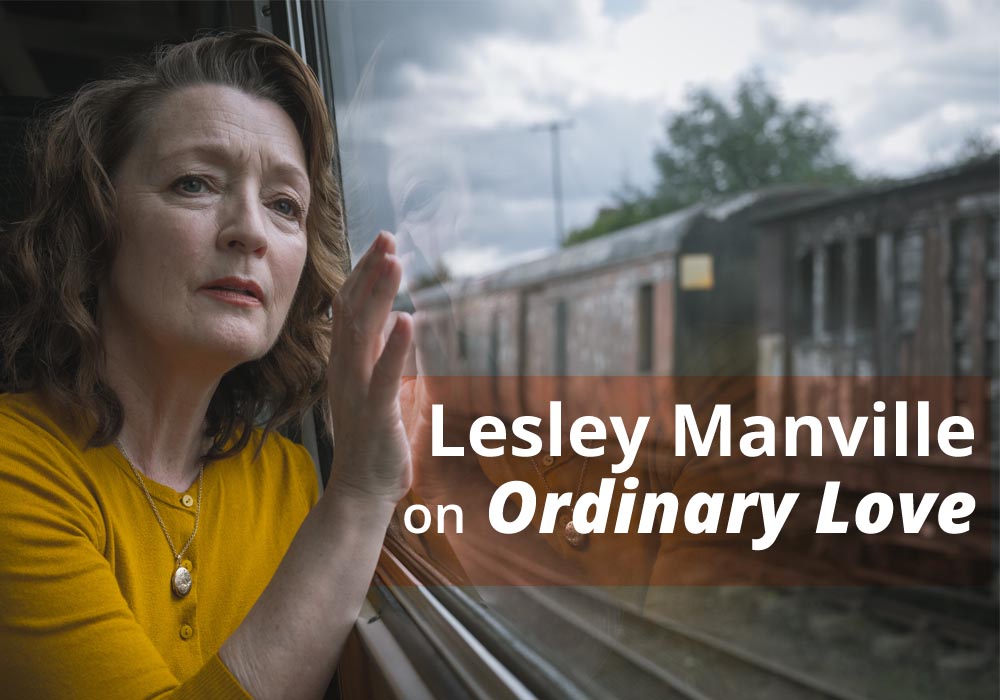Kingsley Ben-Adir on the challenge of playing Malcolm X in One Night in Miami as a man with vulnerabilities that the public rarely saw. We also talked to Aldis Hodge about his work on the film here.
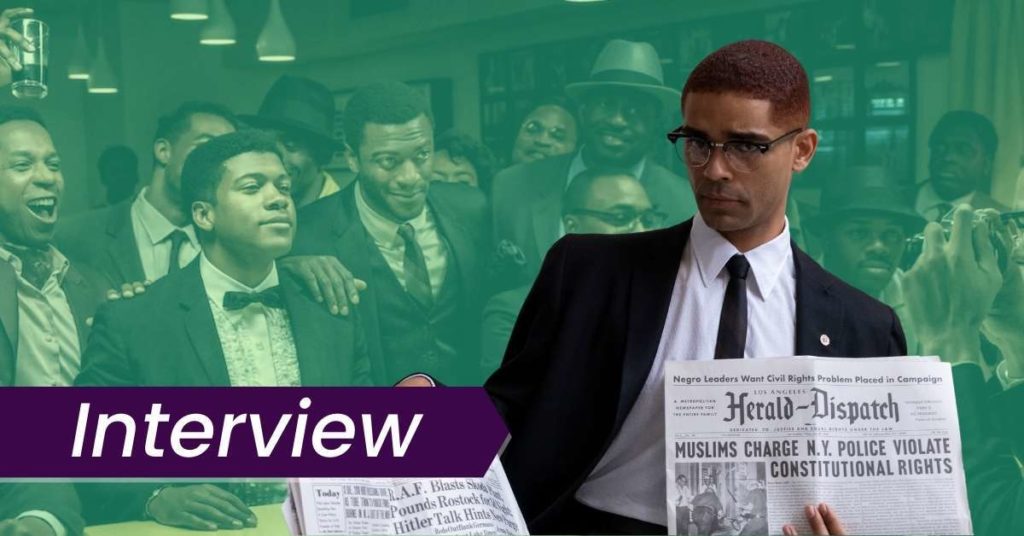
Discover one film you didn’t know you needed:
Not in the zeitgeist. Not pushed by streamers.
But still easy to find — and worth sitting with.
And a guide to help you do just that.
Quietly, and mostly in supporting roles, Kingsley Ben-Adir had a banner 2020. The British actor started the year with a recurring role in the acclaimed (but quickly cancelled) TV show High Fidelity. He followed that up with three more TV roles: a bit part in Love Life, a showcase episode in Soulmates, and a supporting turn as Barack Obama in The Comey Rule. When One Night in Miami premiered at the Venice Film Festival, people finally really started to take note of Ben-Adir’s name. Directed by Oscar-winning actress Regina King, the film takes place mostly in a hotel room. Malcolm X (played by Ben-Adir) chats with three influential friends, Sam Cooke (Leslie Odom Jr.), Jim Brown (Aldis Hodge), and Cassius Clay (Eli Goree).
Ben-Adir plays Malcolm X as we’ve rarely seen him before — in private, as a vulnerable man rather than as the face of a movement. He told me that in his research, he found accounts that described Malcolm X as a “kind, sweet, bashful, and good-humoured man” to those who knew him well, and that “the lacerating demagogue we all know and have got so used to seeing was really a character that Malcolm slipped in and out of.” Ben-Adir commands the room with a quiet but magnetic presence, but as the night presses on, and tensions rise, his calm and collected façade breaks down. Ben-Adir’s voice cracks, his movements become more frantic, and he reaches for words in desperation; he plays the larger-than-life Malcolm X as human.
An interview with Kingsley Ben-Adir
I spoke with Ben-Adir over Zoom about playing famous figures, the joys of the audition process, and whether his stage experience impacted his approach to One Night in Miami, which is based on a play.
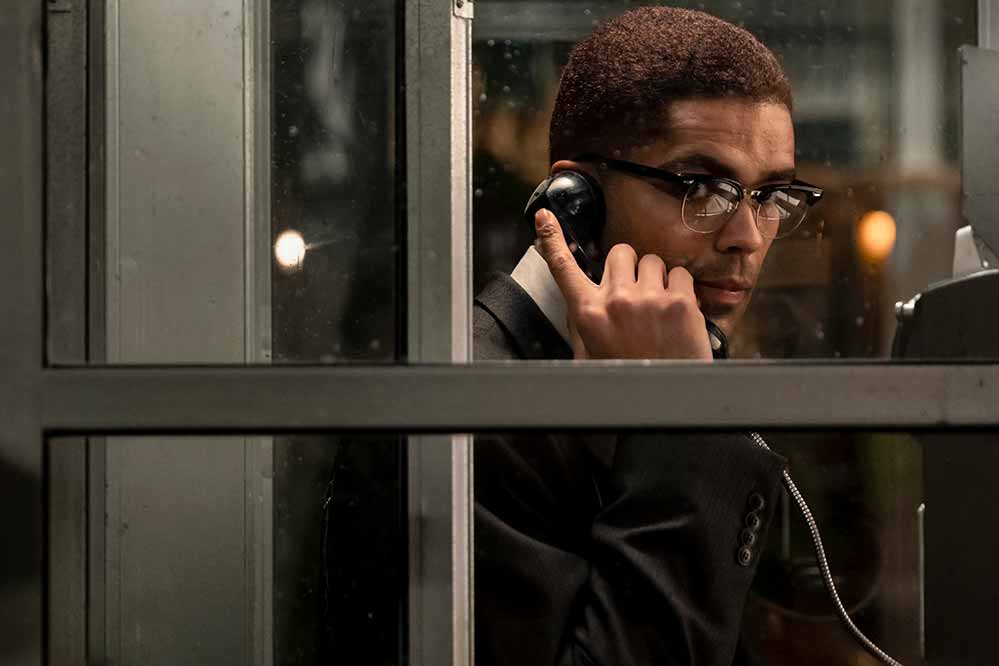
Seventh Row (7R): You’ve played two incredibly famous people this year: Malcolm X and Barack Obama. When you’re preparing to play someone so iconic, how do you approach the research and embodiment process?
Kingsley Ben-Adir: Certainly not as imitation. Billy Ray [creator of The Comey Rule] cast me as Obama first, and I was really excited at the challenge. I was like, “Let me see if I can actually tap into the essence of one of the most famous men on the planet. Certainly, he’s one of the most recognisable voices on the planet.” Creatively, trying to work out how to get into that space was new for me. I’ve only done it in auditions.
I knew the dialect was going to be at the centre of preparing for Barack. I have three dialect coaches. Each dialect coach offers something different. I get a little bit obsessive with dialects. For both of the men, I was exploring the muscularity in their mouth and what those sounds are.
Understanding Malcolm in private
Malcolm was a much more significant role for me, in the story and just for me personally. It was an entirely different experience in terms of acting and process. So much of trying to get underneath this thing was trying to understand who Malcolm was in private. That is, who he was as a father and a husband.
Understanding the history of what was going on for Malcolm at this time was at the heart of my preparation. I learned about the changes that were happening for him and where he was at in his personal life. His relationship with the Nation of Islam was changing. His relationship with his father figure and mentor, Elijah Muhammad, was crumbling. He was on a ban and being pushed out of the Nation; and his life was in danger. The more I understood the specifics of what was happening for him, the more I was able to access the vulnerability of this piece.
Regina [King] and I connected before she cast me. She wanted to understand that the person she was going to employ to play Malcolm understood that Malcolm in this story needed to be different. It needed to be a Malcolm we’re not used to seeing, separate to the stereotypical archive footage. I was like, “The only reason I’m interested in this project is it feels like an opportunity to do something different with him, something that’s of value. I wanted to put a Malcolm on the screen that people could see their own humanity in. People could understand the pressure he must have been under.”
7R: In this film, we see a little of Malcolm in public, but we mostly see him in private around his friends and at home. While I imagine you had a lot of research material on what Malcolm was like in public, how did you work out how he would be different behind closed doors?
Kingsley Ben-Adir: Listening to and watching those speeches and interviews hundreds of times, I became interested in watching Malcolm listening and responding. That became a way into his soul. There was something about that moment just before he responds as he’s listening and taking in information. I didn’t get bored; I just watched and watched him, and it was endlessly interesting.
The most valuable thing that I found was an article in GQ [that features an interview with] Dick Gregory, a dear friend of Malcolm’s, who said that the lacerating demagogue we all know and have got so used to seeing was really a character that Malcolm slipped in and out of, but wasn’t who he was. If he was here now listening to us, he’d be embarrassed. He was really a kind, sweet, bashful, and good-humoured man. I hung onto those words with my life. Dick also said that Malcolm described feeling weak and hollow around this time. Malcolm said that nobody knew the torments he was going through. That made me think, “God, on some level, this man must have been suffering in silence.”
It was interesting to investigate what it must have felt like to have the weight of the world on his shoulders. He was fighting for justice for Black people in America and put his life on the line. I also feel Kemp’s [Kemp Powers, who wrote the play and the screenplay] writing was demanding that of whoever played Malcolm. If whoever played Malcolm didn’t understand that that’s who Malcolm needed to be in this story, it would have fallen fucking flat on its face. The vulnerability of all of these men was the centre of the piece.
A love letter to Black men
Regina said it was a love letter to Black men, and we couldn’t have asked for a better mission statement. The first week [of shooting], we started on the scene between me and Leslie [Odom Jr.] where I was really laying into him. I think we got off to a tricky start because it was just a week of me screaming at everyone. [laughs] It didn’t feel like a love letter until after we got into it a little bit. But we found it in the end.
7R: Did your approach to the performance change much between preparing on your own and actually getting in the room with the other actors? Did you have to adjust to their performances?
Kingsley Ben-Adir: No, I think everyone really had to adjust to mine. And I really don’t mean that in an arrogant way.
7R: No, Malcolm is the centre of that room!
Kingsley Ben-Adir: Yeah. I prepared over Christmas in a way that meant when I turned up, I was completely off book. I had a really strong idea of who Malcolm had to be and had it mapped out. Obviously, without listening and connecting and bouncing off each other, it’s not going to work. So much of the joy of this thing was that the actors have to find this together.
But in terms of the emotional journey of Malcolm, pretty much all the way through, but particularly when he comes back from the phone box and then up on the roof, whoever plays Malcolm has the heavy lifting. I had the language and the mic, so to speak. I had to really drive through those conversations in a way I felt was going to work.
When you spent as much time as I did with those scenes, you realise that the only way they work is if you’re fully invested in the stakes and danger and how crazy this time was for Malcolm. Those scenes only come to life if that energy is where it’s coming from.
And believe me, I tried a million different ways when I was preparing over Christmas. I read those scenes hundreds and hundreds of times. I had a young actor come over and help me because I had 12 days, and we fucking ran that play. We ran and ran and ran it. And it became clearer and clearer as we moved closer to shooting, “God, these scenes only work if we play them with this sort of conviction and passion.”
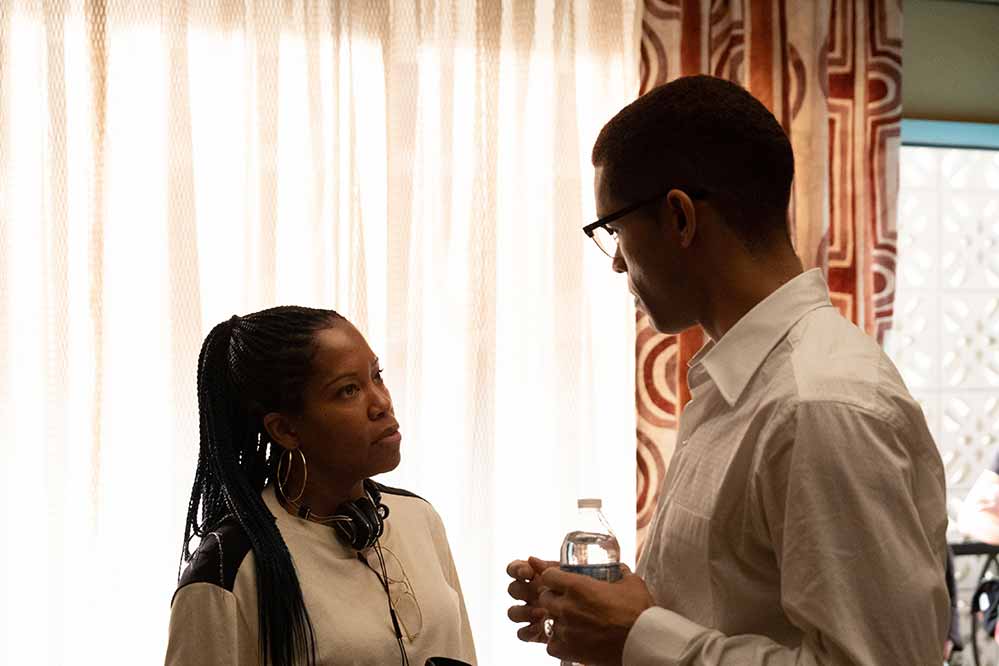
7R: You got your start in theatre, and One Night in Miami is based on a play. I was wondering how your stage training informs the way you approach preparing and inhabiting a character on screen, and whether it was particularly helpful in a film like this with stage origins?
Kingsley Ben-Adir: In terms of stage training, no, I kind of don’t want to give any credit to drama school for anything. But whenever an audition comes through like this one, I always get really excited, because the audition was 15-20 pages of text. To bring that to life in a self-taping setting is really fucking tricky, just logistically. You don’t have the luxury of cutaways. The camera is just on you, the lighting is not very interesting, and you’re not in costume. It’s just you in your house on an iPhone playing huge, huge scenes. For me, the bigger that challenge, the more I feel like I’m up for rising to the occasion.
On auditioning
As a director, if you want someone to put 20 pages on tape for you, you’re limiting the amount of actors who are able to meet you there. To find Malcolm, you have to find someone between the age of 34-40, over six feet, who has the right complexion. It’s a very tricky thing to cast.
I always get really, really excited when an audition comes through and there’s so much language. When there’s a lot of language I feel like I have something to sink my teeth into. And there’s real freedom to set yourself apart from everyone else who’s auditioning. There’s an opportunity to put your stamp on something. Sometimes, in TV and film auditions, you’ve got like a page and a half. Shit can be really hard to get creative with. But this was a dream. You get these maybe once every few years. Then, the audition stage becomes just as exciting as anything.
Working with Regina
The whole process of working with Regina was exciting from the beginning, from the creation of that self tape. Knowing that Regina is going to be watching the tape is such a huge motivation to create something interesting. And you’re really trying to get her attention. What’s the best way to go at this to try and make her want to pick up the phone and have a conversation? I find it really mind-boggling to know that so many people didn’t want to tape for her. It’s Regina King! Damn right everyone has to tape for Regina King!
You could be missing out on great films and performances (like Kingsley Ben-Adir’s in One Night in Miami).
Subscribe to the Seventh Row newsletter to stay in the know.
Subscribers to our newsletter get an email every Friday which details great new streaming options in Canada, the US, and the UK.
Click here to subscribe to the Seventh Row newsletter.

